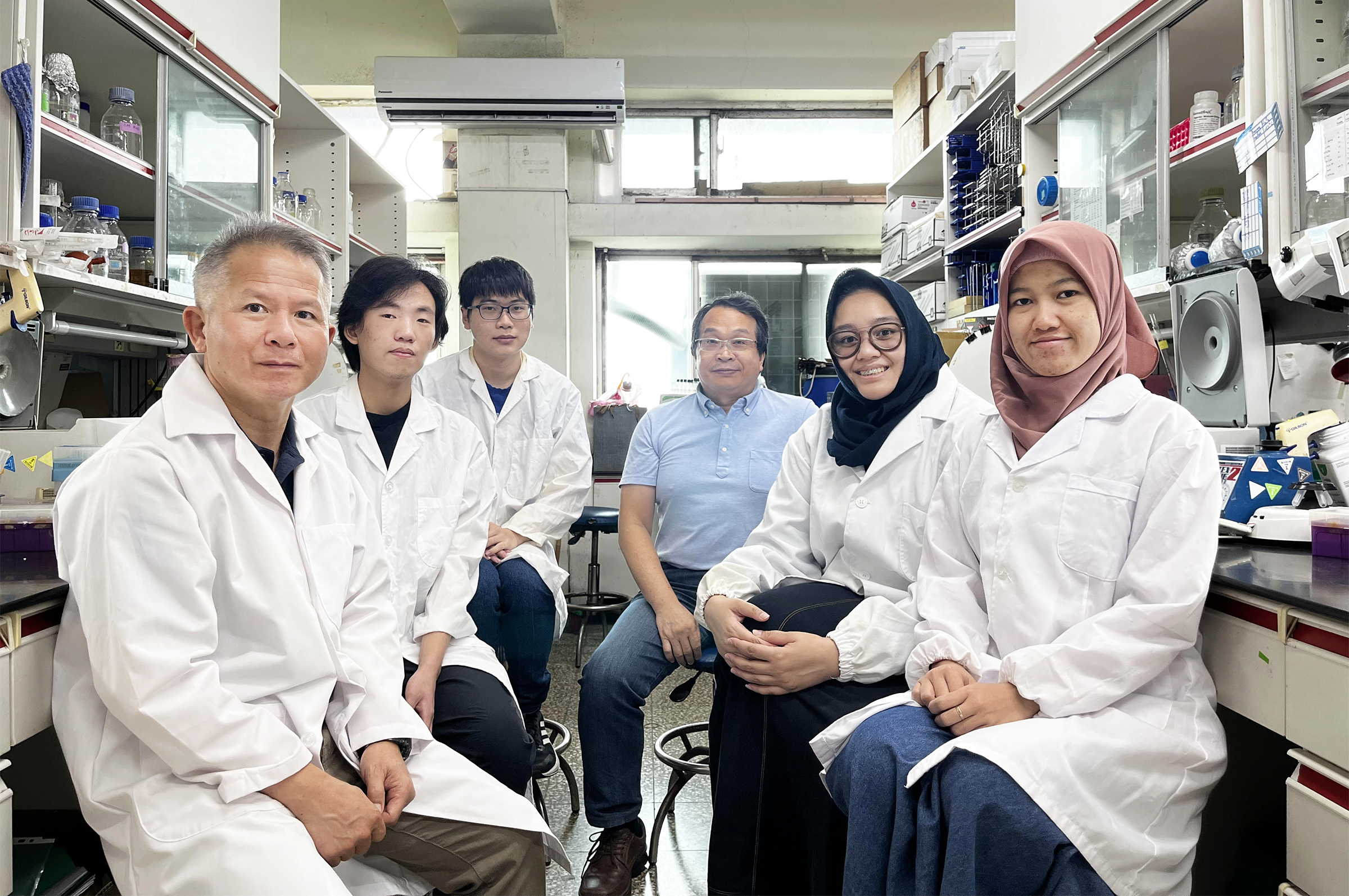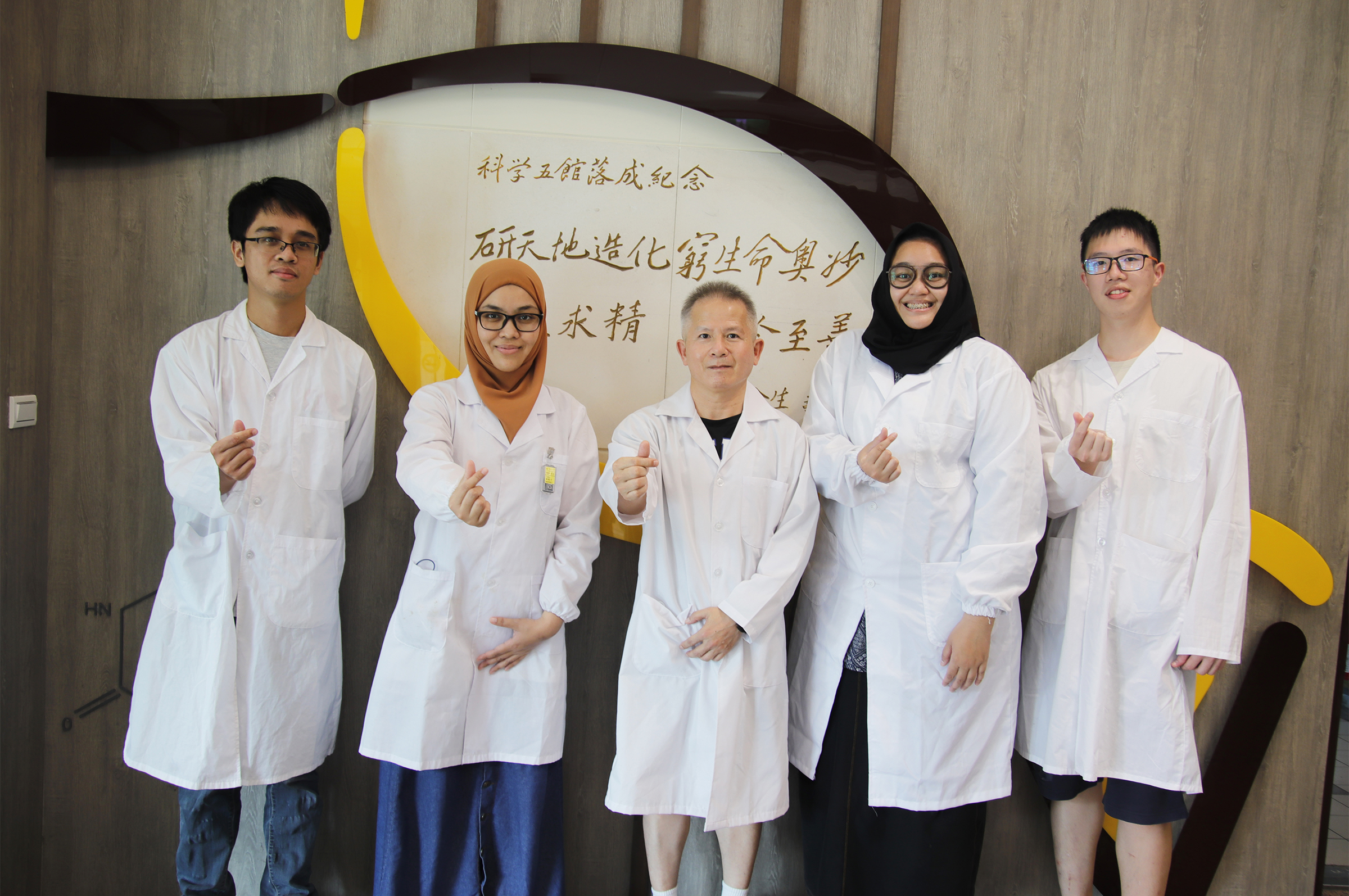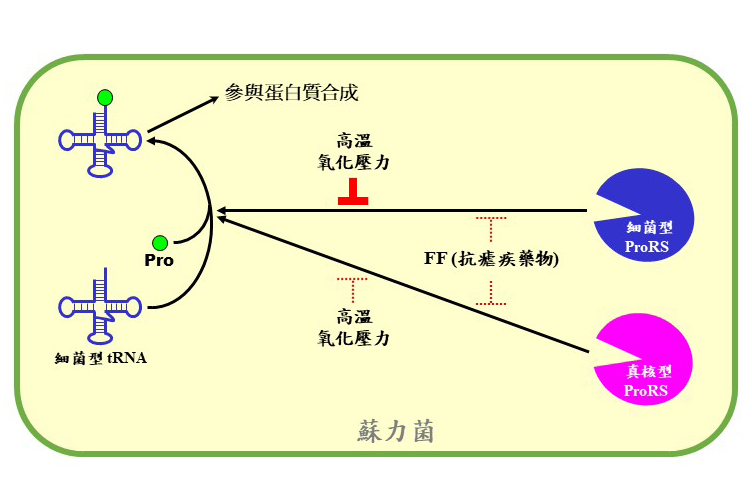Academic News

Malaria is a disease caused by the Plasmodium parasite. According to the World Health Organization, approximately 50% of the global population lives in areas with a high risk of malaria infection, making the development of antimalarial drugs an urgent priority. Professor Wang Chien-Chia, Dean of the College of Health Sciences and Technology at National Central University, and his research team made a significant breakthrough in genetic research, providing new insights for antimalarial drug development. Their findings were published in the prestigious journal Nucleic Acids Research.
Professor Wang's research team discovered that Bacillus thuringiensis (Bt), unlike other bacteria, carries an additional Prolyl-tRNA synthetase (ProRS), which was transferred from eukaryotic cells to bacteria via gene transfer. However, the protein structure of this ProRS has changed, making it more similar to bacterial ProRS, and giving the bacteria resistance to the antimalarial drug halofuginone (HF).
During evolution, the eukaryotic-type ProRS in Bt adapted its structure to efficiently recognize bacterial tRNA, helping Bt survive under various environmental pressures. Most notably, this eukaryotic-type ProRS exhibits significantly higher resistance to HF than other known eukaryotic ProRS.
Many foreign research teams are currently working on HF derivatives for the development of treatments against parasitic infections such as malaria, toxoplasmosis, and cryptosporidiosis. HF is seen as a promising candidate for future clinical applications.

